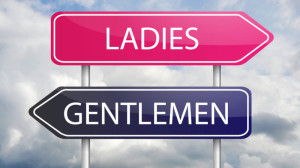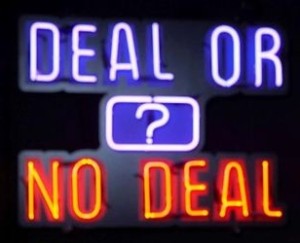We are so caught up in the arguments following from our cultural fragmentation that we miss opportunities to step back and ask ‘how did we get here?’ Most historical explanations can go back as far as patience can take us, certainly I think the agricultural revolution is an oft-overlooked factor in our contemporary gender politics, yet it is surely the 1960s that are worth pondering as the background to our present malaise.
After all it was in the 1960s that ‘everything changed’. Traditional defence was pushed aside (as with the Lady Chatterley trial and the consequences of the Profumo affair); progressive laws were introduced with regard to abortion, sexual rights, divorce law and the abolition of capital punishment; popular (youth) culture transformed itself with new musical styles and the consequences of the ready availability of the contraceptive pill; changing patterns of work and home life leading to the equal pay act and so on.
So much of this seems unarguably good, yet I do believe that certain social currents were established in the 1960s that we now need to pay much closer attention to, and these seem to be coming into a focus around gender relations.
All right thinking people believe in equality of treatment for the sexes before the law. That, perhaps, is a weaselly phrase (who counts as ‘right thinking’, and who decides who counts?) yet it is only in the darkest corners of the internet that arguments against a full equality of treatment for one sex – or another – can be found.
Yet what this insistence upon equality of treatment seems to have set in train is the notion that men and women are functionally equivalent. This leads to some absurdities, as when a military force lowers the standards for entry (the US Marine Corps) in order to enable more women to enter. The ideal of an elite fighting force is being sacrificed upon the altar of political correctness. This is an ultimately self-destructive path.
We need to learn once again that an acknowledgement of differences in the aggregate between different groups – as between men and women – does not necessitate the unequal treatment of any one individual man or woman. If there is a particular standard that needs to be reached in order to be a marine, let that standard be maintained. Some women will be able to achieve it. Of what worth is the achievement if it is known that the standards were lowered? Isn’t that in itself a deeply patronising and insulting stance to adopt?
There is now so much research indicating the profound differences between the typical man and the typical woman, in terms not simply of obvious biological externals but internal brain architecture and hormonal equilibriums. Remarkably, some of the most eloquent testimony comes from women who are transitioning to a male identity, and taking testosterone supplementation for that purpose – and who are profoundly shocked and chastened to discover the different ways in which male sexuality informs the psychology as a result of that extra testosterone.
What has often seemed to happen as a result of the liberation let loose by the 1960s is that women have been encouraged to be men, that women can do anything that a man can do. This seems to me to be such a profoundly mistaken approach; not only is it the case that making women into not-quite-good-enough men doesn’t help either sex, it also radically underestimates and undervalues the distinctively feminine strengths that women have always been able to bring to bear. The culture of feminism that so denounces patriarchy seems to have no conception of just how strongly men wish to please the women in their lives, and the impact that this has upon the power balance between the sexes.
What is worse, this mistaken evaluation of female strength has gone hand in hand with a vilification of male strength, and this has a current form in discussions of ‘toxic masculinity’. In a culture that has claimed that men are superfluous, and that has pushed that notion to its logical conclusion through the divorce courts, we have ended up with generations of young men that have been deprived, not just of contact with their fathers, but of contact with any truly virile examples of what a noble man might look like. Men need competition; boys need proper ‘rough and tumble’ if they are to learn both their own power and the importance of boundaries. What we now have are so many examples of rootless and hollow men causing chaos in ways large and small. The natural counter to this is not to continue taking away responsibility and authority from all men but rather to ensure that those men who bear authority are well equipped to do so. Which means we need to talk about virility and virtue – both words with distinctly masculine (vir) roots.
What seems to have happened is that an embrace of radical individualism has been allowed to undermine all the blessings that come from community cohesion. We need to strike a new balance between those two necessary elements of a healthy common life: not a return to some mythical bygone era in which everyone knew their place and stuck to it, nor an environment in which every single solitary person is allowed to follow their own desires irrespective of the harms that might follow from their choices, but rather a place in which the community can serve the individual and the individual in turn can serve the community. The truth is that neither can flourish without the other – the present emphasis on individual freedom and personal choice seems to have as its most salient feature a radical rise in personal misery and depression.
These things are all connected. As we see the consequences of choices made fifty years ago we need to sift them to work out what was good and what was bad, restoring a healthy discrimination and judgement that will enable all of us to flourish.






You must be logged in to post a comment.